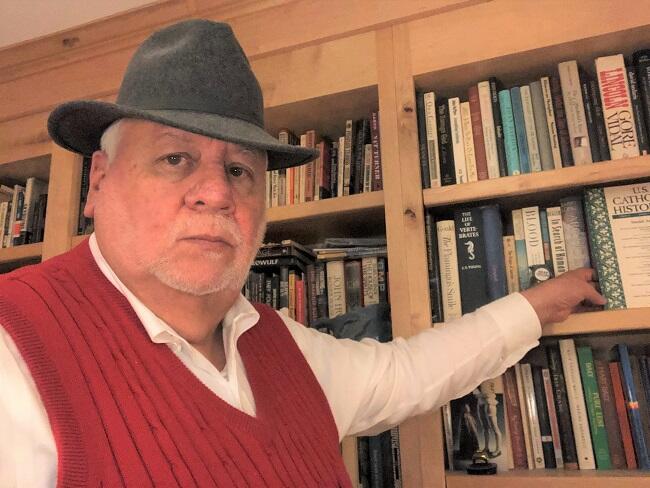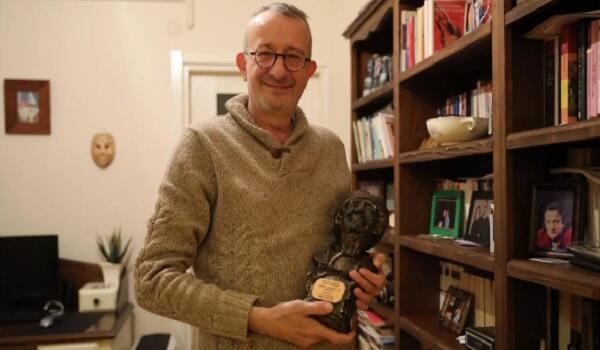Axar.az presents an article "My Family's Slaves" by John Samuel Tieman.
I always thought slavery was a rather remote subject. Until recently.
Confederate memorials, memorabilia, flags and such always make me uncomfortable. I avoid reenactments, not out of politics, but because I'm a war veteran. But I have always been OK with my great-great-grand-uncle, John Wimer. Here in St. Louis, he ran for mayor, and won, on the Workingman's Party and then on the Emancipation Party ticket. I always presumed from that, and from various readings, that he was pro-regionalism and anti-slavery. I get regionalism. Just bring the New York Mets to town, and watch me get regional. I get siding with your region. I don't get slavery. In the Civil War, John Wimer was brevetted a lieutenant colonel in the Confederate cavalry. He died in battle. So I thought I understood John Wimer. Until recently.
Until I discovered that the 1850 census records that John Wimer owned three slaves, an adult male, a teenage male, and a female child. These he may have sold. The 1860 census records that he by then owned an adult male, an adult female, and three children. A family perhaps. My family owned a family.
I feel like I should make some grand thesis out of this simple fact. I have a Ph. D. in intellectual history. I am a liberal. I have written about and demonstrated for civil rights. I taught university and high school for forty years, fifteen of those years in inner-city schools. But a grand thesis, some sweeping realization? I just don't have such a thing. All I've got is shock and its resultant shudder.
Maybe that's the realization. The shock. The shudder. The realization that, if slavery is America's original sin, then I am not unblemished born. Because of my academic background, and my leftist politics, I know the issues. The fact that John Wimer owned slaves reveals nothing to me ideologically or historically. My surprise is personal. I am left with feelings, feelings I cannot rationalize or intellectualize, this writing notwithstanding. Feelings I can only explore. My family owned at least eight slaves. My family owned a family. I shudder.
| approximate age |
gender |
race |
owner |
residence |
| 6 |
female |
mulatto |
John M. Wimer |
St. Louis, Missouri |
| 13 |
male |
black |
John M. Wimer |
St. Louis, Missouri |
| 27 |
male |
black |
John M. Wimer |
St. Louis, Missouri |
The 1860 “slave schedule” reads:
| 38 |
female |
black |
John M. Wimer |
St. Louis, Missouri |
| 35 |
male |
black |
John M. Wimer |
St.Louis, Missouri |
| 14 |
male |
black |
John M. Wimer |
St. Louis, Missouri |
| 7 |
female |
mulatto |
John M. Wimer |
St . Louis, Missouri |
| 5 |
female |
mulatto |
John M . Wimer |
St . Louis, Missouri |
They asked the age, and this was recorded. They asked the gender, and this was recorded. They asked the race, and this was recorded. The location was obvious. The name of the owner was recorded. The slave's name was not recorded. I inherited the only recorded name, John. Wimer is my mother's maiden name.
I can't bear to think of the implications of mulatto children. But think of it I do. I hate to consider the whip. But consider it I do.
Given that there were no more "slave schedules" by 1870, it is impossible to tell what became of any of these folks when John Wimer died in battle in 1863. Sold, probably. Or perhaps inherited. What was it like to inherit a human being?
I want to think of the people. They likely were house slaves. But I don't want to think only of their work and living conditions. I want to think of the life of their minds. Did they read? John Wimer was Catholic. Were the slaves Catholic? I wonder what it was like for a slave, in a divided city like St. Louis, to live right alongside free Blacks? I'll never know the answer to these and a thousand other questions. But I won't stop wondering.
So the national soul-searching becomes personal. What responsibilities does a descendant of a slaveholder bear? What can we do to make things right? I am not a wise man. I have no answers to these and a dozen other questions. Maybe one day I will. For now, all I have are feelings. It's a start.
History is a relationship, generally a relationship between the living and the dead. Like any relationship, we struggle to know. But beyond knowing, we struggle for understanding. Understanding can take years, decades. Indeed, understanding struggles toward a resolution we may find for this moment, only to have the struggle continue in the next. To me, the commitment is to this journey, to continue my relationship with those slaves, to have a personal relationship with my Black neighbours. What comes of this emotional exploration? A vow. A vow to bring concrete solutions to the inequities my ancestors wrought.












































.jpg)









